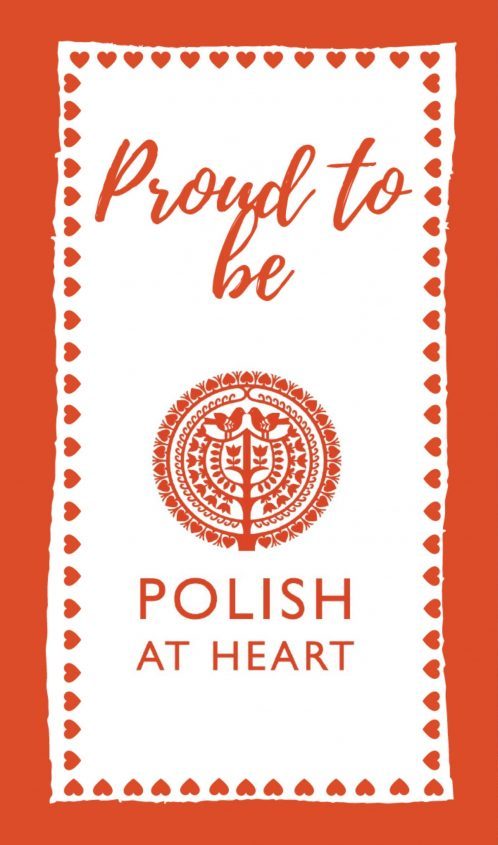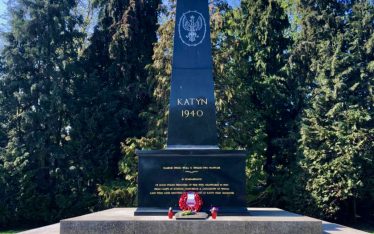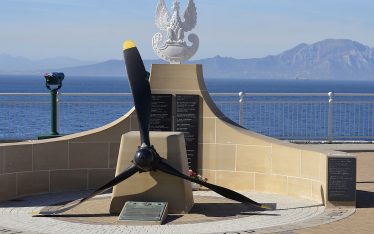“Stańcie do Apelu” – “stand for the roll call” always sends a shiver through my spine. The silence just before a soldier or scout reads this at 17.00 on the day the Warsaw Uprising began, is both eerie and deeply meaningful. Over the years I have mostly been on scout camps on this day, singing songs of the young scouts, soldiers and partisans fighting in World War II (WWII). Then the roll call for all those who died, is read. Beginning on 1 August 1944, the battle run by the Polish resistance, the Home Army, was a valiant attempt to liberate Warsaw from five years of brutal German occupation.
Warszawskie Dzieci idziemy w bój!
Children of Warsaw, we go into battle,
Za każdy kamień Twój, Stolico, damy krew!
For each of your stones, capital city, we will give our blood!
Warszawskie dzieci, pójdziemy w bój,
children of Warsaw, we go into battle,
Gdy padnie rozkaz Twój, poniesieni wrogom gniew!
When your command is given, we’ll raise the enemy’s anger!
This song appeared in the underground daily paper on the first day. Recorded for and broadcast on the underground radio station “Błyskawica”, a leaflet with lyrics and sheet music was issued alongside, demonstrating just how prepared the people of Warsaw were. It became a symbol of the Uprising in which children as young as nine took part.
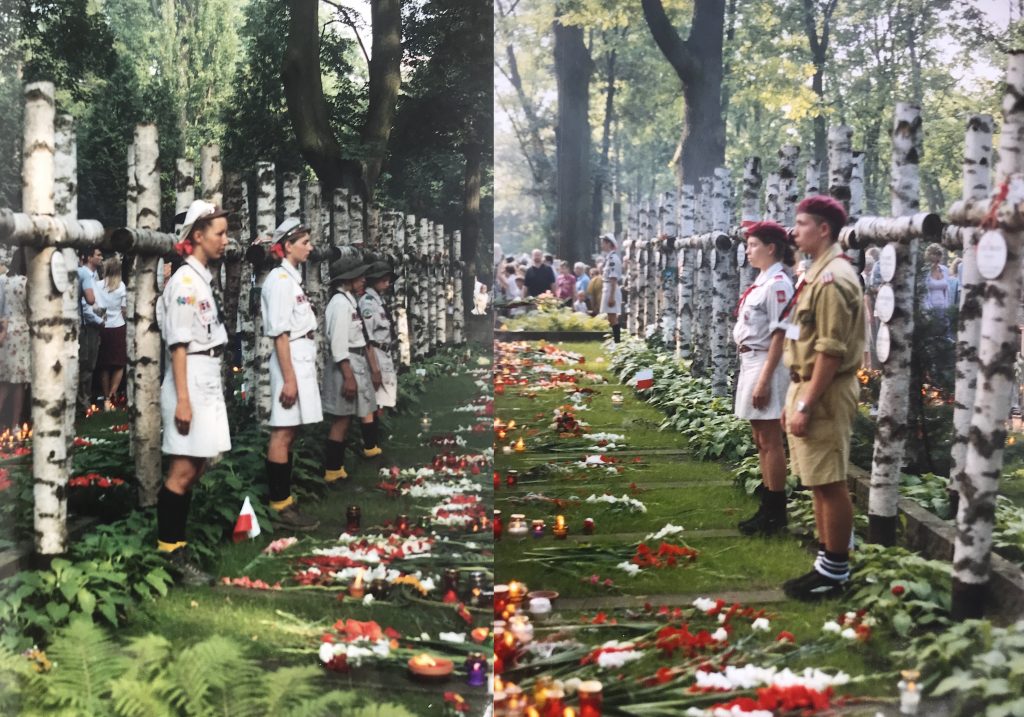
Powązki cemetery where the graves of the young insurgents were transferred after WWII. Marked by birch crosses and guarded by the young (2004)
According to Norman Davies, the story of this battle for Warsaw (as called by the Home Army) has not been given the significance it deserves in the Western narrative of the war, partly due to embarrassment at other nations’ inability to help. Neither was it brought to the Nuremberg trial despite the fact it resulted in a near total destruction of one of Europe’s ancient capitals and the murder of between 150,000 and 200,000 Polish civilians plus the death of about 16,000 fighters and the wounding of 6,000*. Had this happened in Paris or Rome it would have been recognised as a critical point of the war and commemorated as such. However, the post-war communist authorities in Poland severely censored all talk of the Uprising and imprisoned the few remaining fighters. Only in 2004, after the regaining of Poland’s independence was the 60th anniversary of the Uprising properly commemorated.
I attended the 2004 commemorations with a delegation of hundreds of Polish scouts from around the world – children and grandchildren of the Siberian exiles and a small minority of the survivors of the Warsaw Uprising. It was a great honour to march in a parade on 1 August through Warsaw but I had mixed emotions of pride at the young boy and girl scouts who had fought so courageously and deep sadness at the tragedy of lives lost so young.
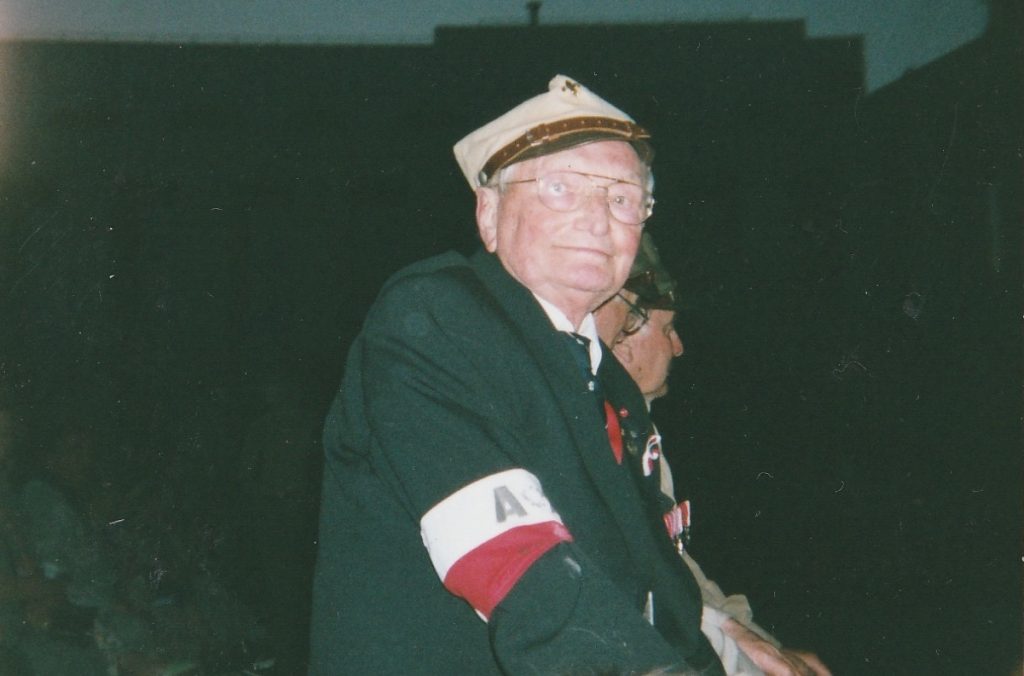
Witold Szablewski who took part in the Uprising, aged 22 / Photo: © A Kucewicz 2004
“Dlaczego myśmy walczyli? Nie dlatego że nam dawali rozkazy, nie dlatego że znaliśmy się na politycę… byliśmy młodymi chłopcami wychowani patriotycznie przez harcerstwo, rodziny i chcieliśmy wydrzeć niemców z Polski.”
“Why did we fight? not because they gave us orders, not because we understood the politics,, we were young boys brought up patriotically in the scouts, in our families and we wanted to tear the Germans out of Poland”
Witold Szablewski (now deceased, pseudonim “Zygfryd”, “Kiliński” batallion) – said this to me many years later, with tears in his eyes for his deceased comrades. The images of the Uprising ever vivid, stayed with him for his whole life.
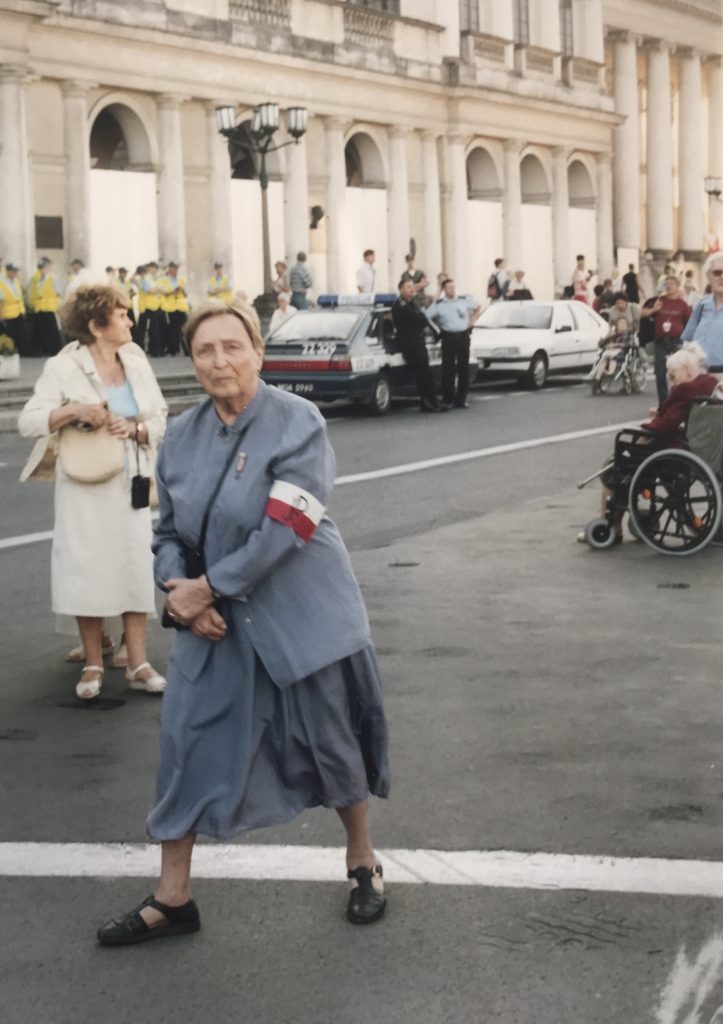
An unknown lady in Warsaw with the Uprising arm band / Photo: © A Kucewicz 2004
This lady may have been an insurgent, and you have to see beyond her age to see the faces of the young people throwing away their futures for their honour, for their city and country. They lived fast and died in the blink of an eye, mown down indiscriminately for their bravery.
Let me tell you dear daughter, that I was no heroine,
Everyone was building the barricades under fire.
But I did see heroes;
And I must tell you about them.
…..There were so many noises then;
The roar of planes, of fire of despair,
Rising up to the clouds, screaming.
Now the earth and the sky are silent.”
(Anna Świrczyńska ps. “Świt” – Budowałam Barykadę 1974)
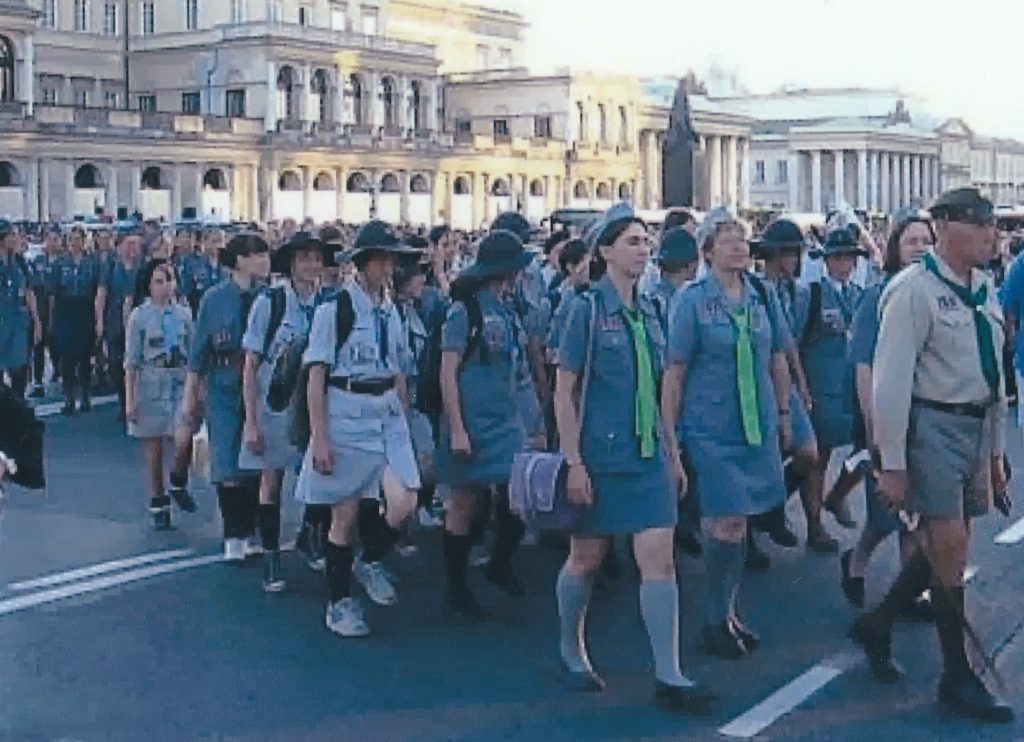
March of Polish Scouts in Warsaw 1 August 2004 / Photo: unknown
As I marched through the streets of Warsaw in 2004 towards the newly built Museum of the Uprising there was near total silence. One of the elderly people handed me a little PW (Polska Walcząca – Poland Fighting) pin badge. I have treasured it as a symbol that we are the ones who must keep this story alive. Because so many young people died in vain, we who have seen the return of the freedom they fought for, cannot forget them.
On 1 August watch the Warsaw Uprising Museum on facebook – they usually broadcast the moment that Warsaw trams and cars come to a standstill every year on 1 August at 17.00 Polish time. Read Norman Davies’ book* “Rising ’44”, watch the film of a similar title or the poems of Krzysztof Baczyński .
* Norman Davies, Rising ’44, McMillan 2003
You may also wish to read:
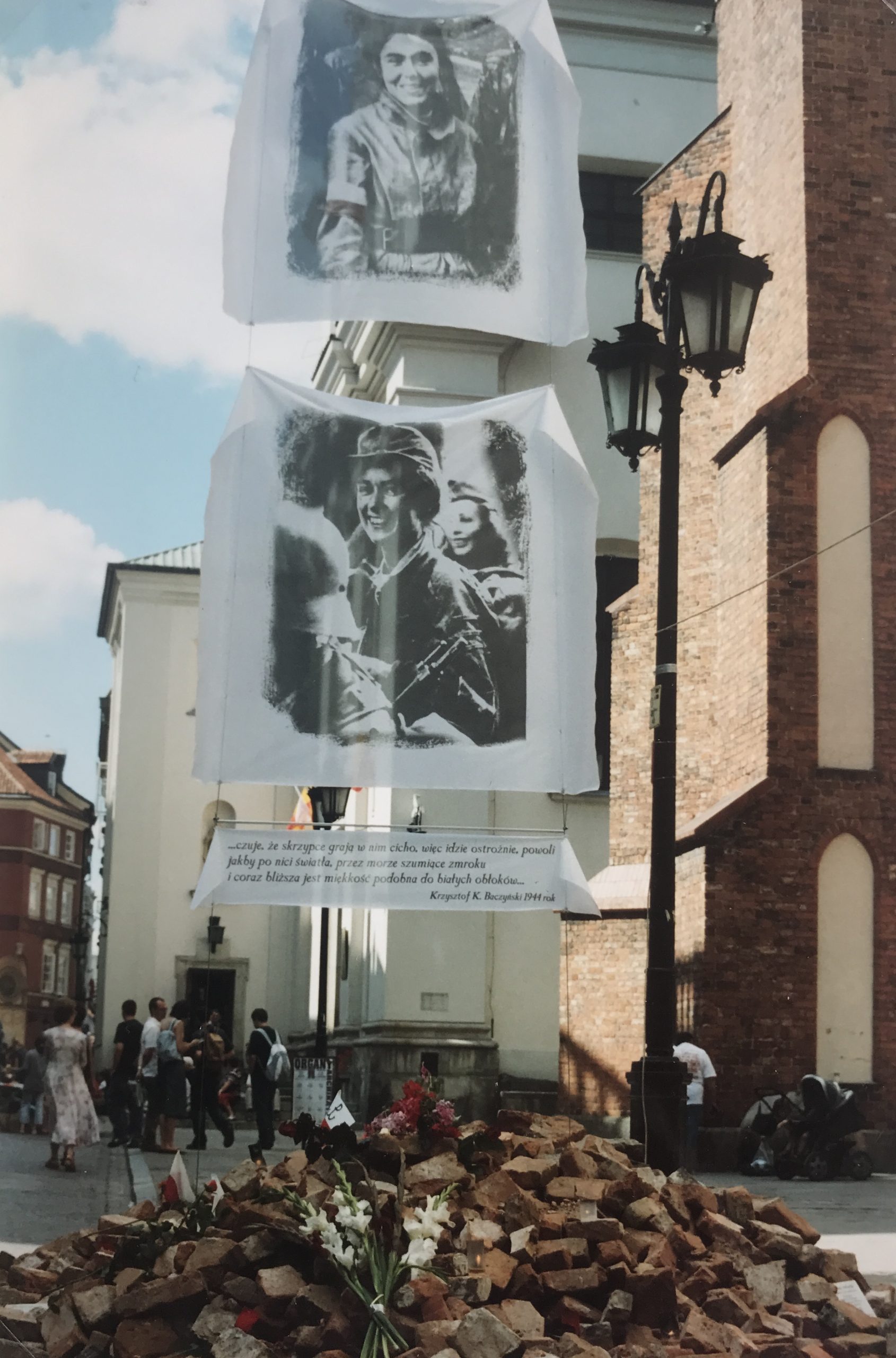

 1.Tracing Family History pre-WW2
1.Tracing Family History pre-WW2 2. Tracing Family History WW2
2. Tracing Family History WW2